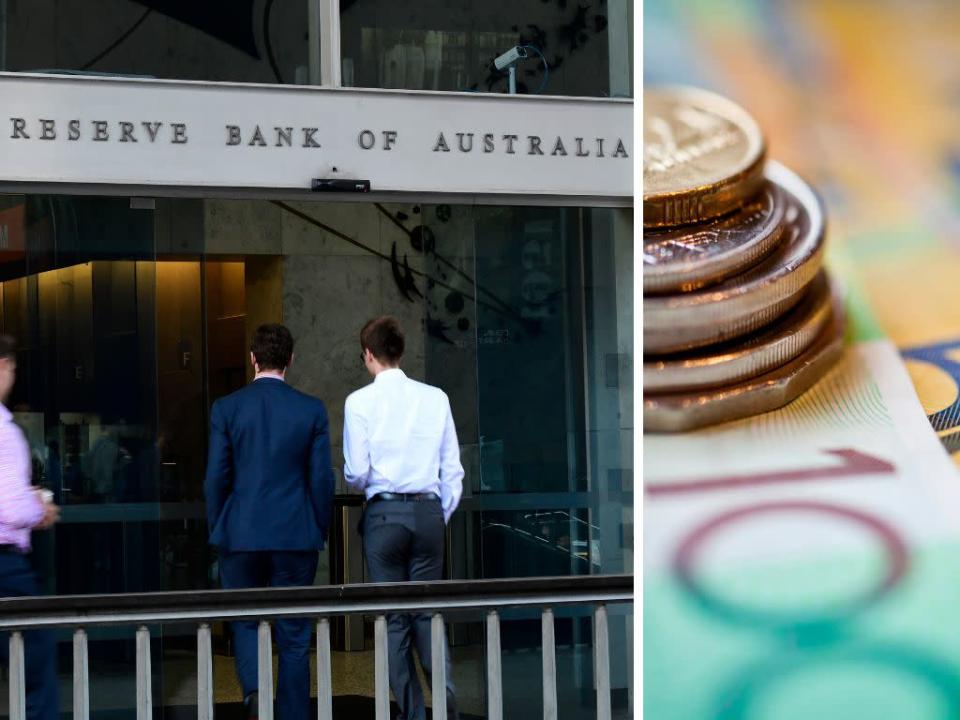Here’s how the RBA rate cut will affect you, even if you don’t have a home loan

The Reserve Bank of Australia, which hasn’t budged on the cash rate in nearly three years, cut interest rates at its monthly meeting today.
The official cash rate has dropped to a new record low of 1.25 per cent, which is a big relief for variable mortgage holders.
But it’s not just homeowners who will be impacted. Although you might not notice it, and the impacts may be negligible, it will affect you – even if you don’t have a home loan.
Related story: Should I choose a variable or fixed interest rate home loan?
Related story: Property market turns a corner as historic rate decision looms
Related story: Heading overseas soon? Cash in your Aussie dollars NOW
Here’s how your financial situation may look different now that the RBA has slashed interest rates:
If you’re a saver...
You’ll see less monthly interest coming through your bank account every month.
The interest rate is determined by your bank, which is influenced by the Reserve Bank’s decision. If the RBA moves, the banks often follow suit.
However, interest rates are already so low that you won’t notice a huge difference.
“Gone are the days 10 years ago when term deposits offered 7 per cent interest,” financial adviser James Gerrard told Yahoo Finance.
“The best online cash accounts offer around 3 per cent interest and most term deposits sit between 2 and 2.5 per cent, hardly above inflation, and this is likely to fall with an RBA rate cut,” he added.
But if you’ve got a lot of money in savings, and will notice a small change in interest rates, the advice is to shop around.
“People shouldn’t be afraid to shop around and use a non big four bank if it means getting a better interest rate.”
Low interest rates are also nothing new for investors, and most have already made adjustments to their investments, the Australian Institute’s Centre for Future Work director Jim Stanford told Yahoo Finance.
“[The rate cut] can be hard for some savers who have money in very traditional, ‘safe’ deposits (like simple savings accounts, safe government bonds, etc).
“However, interest rates have been so low for so long, that most sophisticated investors have already put their money into riskier but (hopefully) more profitable investments anyway.”
So it’s those who have a huge amount in their bank deposit and are depending on the monthly interest to build up who will be hardest hit. Which brings us to the next group.
If you’re a self-funded retiree…
If your main source of income comes from the interest you get on your savings, you’ll be stung by the RBA’s move.
“[The rate cut is] really going to have more of an impact if you’ve got $100,000 invested in the bank, and you’re relying on that interest income to live on,” AMP Capital chief economist Shane Oliver told Yahoo Finance.
“So if you have $100,000 in the bank, you’re getting 2.5 per cent from your bank at the moment, that’s $2,500 from the bank,” he said.
“You’ll still be struggling to live on that. And you might lose $250 [following the rate cut].”
If you’re a small business owner…
On the whole, a lower cash rate is good news if you run a business.
On the one hand, since business owners have savings accounts just like everyone else, small businesses often have more debt than money in their bank deposits, Oliver pointed out.
“It is probably good news … since most business owners have some amount of debt, it means the interest you pay on that debt will go down,” Oliver said.
Not only that, but since the lowered interest rate is designed to encourage more consumer spending, businesses will be the direct beneficiary of Aussies feeling more willing to open up their wallets.
“A rate cut boosts confidence within the economy and in turn consumers spend more money which a large part flows through to small businesses,” Gerrard told Yahoo Finance.
If you own shares…
Historically, share markets tend to react positively to RBA rate cuts, so if you’re invested in stocks, a rate cut should be good news for you, said Gerrard.
“In addition to lower corporate borrowing rates and improved consumer confidence, more people move from cash into shares, chasing higher income returns which pushes the market higher.”
If you’re about to go overseas for a holiday…
The aim of the Reserve Bank’s rate cuts is to inject extra cash into the economy by giving mortgage holders extra cash in their pockets. But it’s also to force the Australian dollar lower and thus boost our export income.
So a rate cut generally pushes the Aussie dollar lower, meaning you’ll get less bang for your buck when you convert your money.
“For people going overseas, this means lower conversion rates. If the cash rate drops, people from overseas are less inclined to hold AUD as they get less interest, pushing the AUD lower,” warned Gerrard.
But since the rate cut has been widely anticipated by economists and the market, the impact on exchange rates “should be relatively minor,” Gerrard said.
Make your money work with Yahoo Finance’s daily newsletter. Sign up here and stay on top of the latest money, news and tech news.

 Yahoo Finance
Yahoo Finance 